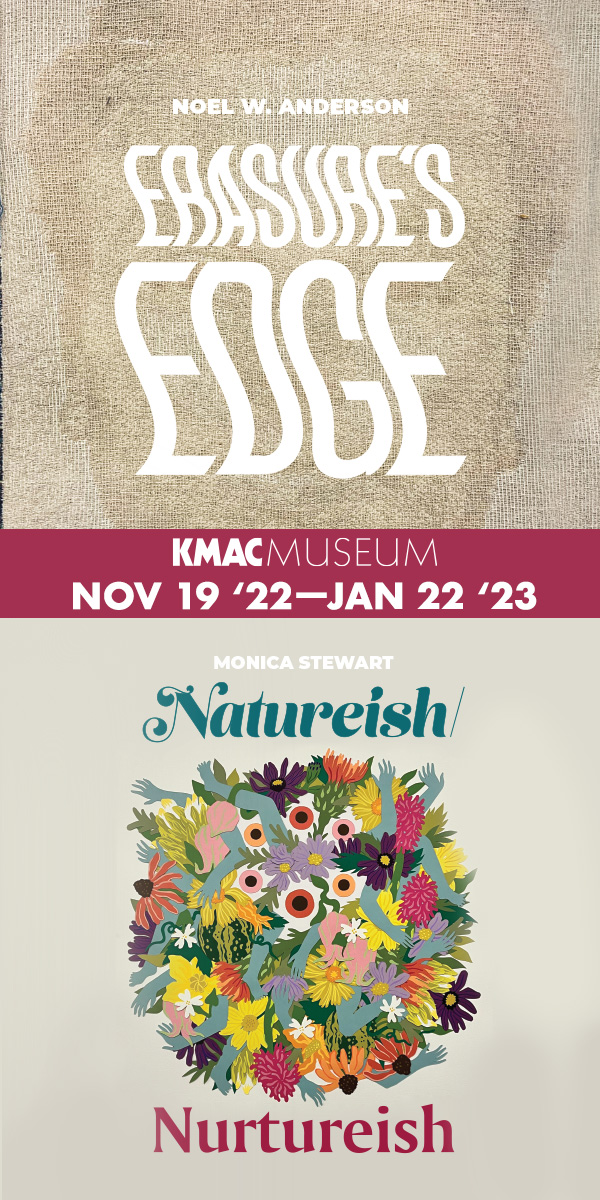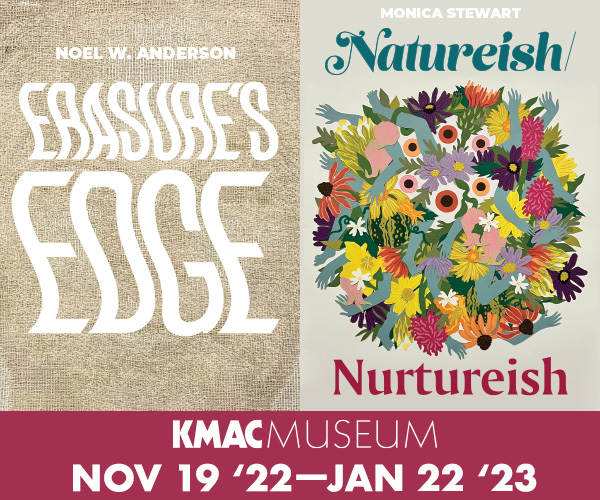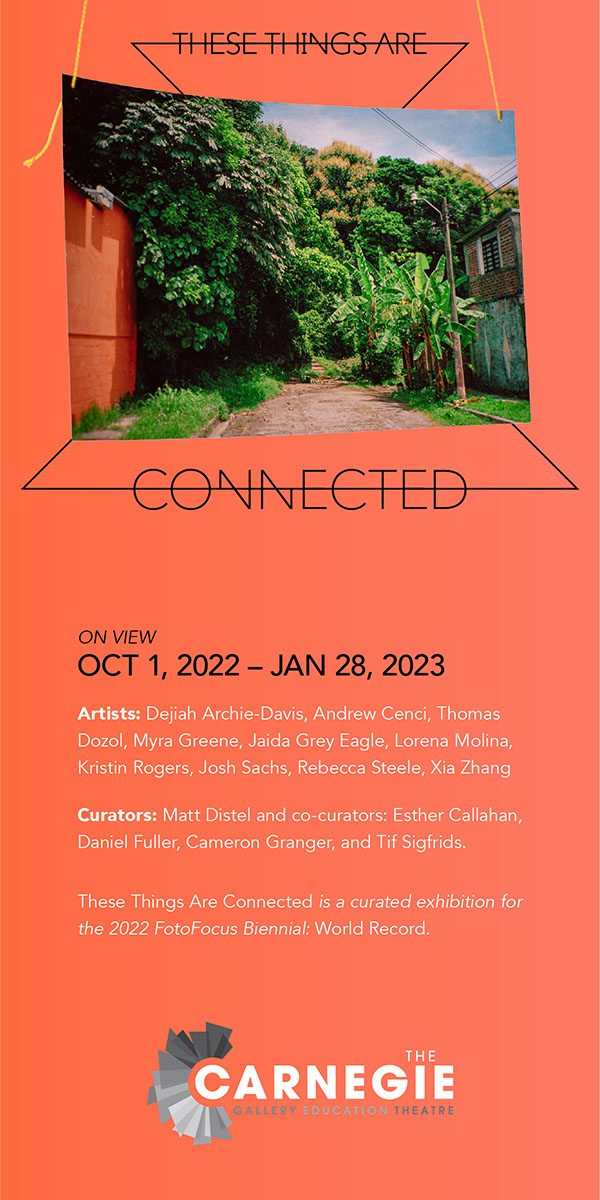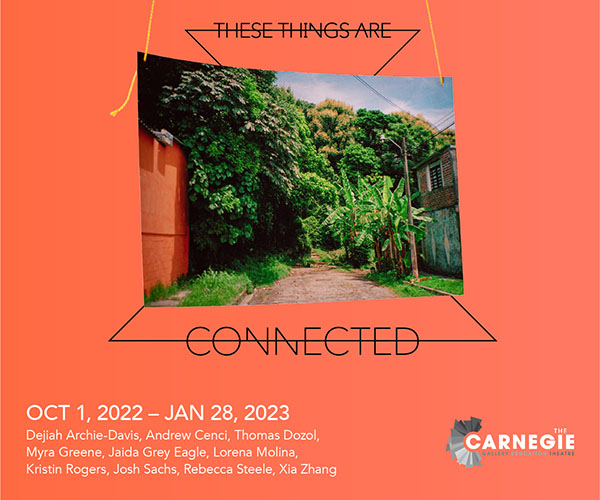Photo: Emily Reed as Scout
Thursday, November 20th, sees the opening night of “To Kill a Mockingbird,” the second play in the AthensWest inaugural season. After the first play of the season, “Doubt,” met with critical and commercial success, the new theatre group is pressing forward, changing the face of Lexington Theatre. Joining me to talk about ‘Mockingbird,’ AthensWest, and the new vision of theatre in this region, are Jeff Day and Mark Mozingo, co-founders of Lexington’s newest theatre group.
UM: Jeff, thanks for taking time to talk about the show and Athens. What was the process that brought about Mockingbird as the second show in the season?
JD: Well, it’s pertinent to now. What’s going on today is what was happening when Harper Lee wrote the book in 1960.
UM: Such a well-known book and it translates well as a play. Did the release of the new Lee novel have any bearing on the board’s decision.
JD: Of course. We knew Lee was very much in the public eye with her new book, and we knew this would be an incredible play to put up.
Harper Lee’s novel, “Go Set a Watchman,” was published this year and contains many of the same characters from her classic story. The film of “To Kill a Mockingbird” appeared a few years after its publication and starred Gregory Peck and Robert Duvall. It stands as one on the all-time classics of American cinema. Lee said of Horton Foote’s screenplay: “it’s one of the best translations of a book to film ever made.”
UM: AthensWest is housed at the Downtown Arts Center, correct?
JD: Yes. The Center was taken over by Parks and Recreation and we have a wonderful working relationship with them. We’re all highly affiliated with LexArts as well. The coming together of many arts groups, we feel, is what Lexington has been needing for many years.
UM: How did AthensWest come about?
JD: We started initially because we had the dream of creating an Equity theatre in Lexington. For so long a time there has been no Equity theatre and we were wanting to up the standard, not from the standpoint of having only Equity actors, but having the guidelines that professional theaters outside of Lexington must have.
UM: For those who may not know, Actors’ Equity is a professional organization that actors can belong to. Most Equity actors are encouraged to take roles only in productions sanctioned by Equity.
JD: Right. It also ensures that actors get a decent wage for their time and effort and so on. This has been a big struggle for actors in this region for years, where weeks and months would be spent on a show, many times needing to take time off from day jobs or being away from family with no compensation other than your name in a playbook. In Spring of 2014, I put a big proposal together, I met with the mayor, and I’d already been in conversation with Bo List. Bo and I started meeting on a regular basis. I was in a production of Twelfth Night and one evening, after a performance, Bo came to me and said, “let’s do Doubt,” which became Athens first play. We held open auditions. Bo and I were doing everything at first, then we enlisted Mark and Kate Goodwin.
UM: And by Mark, you mean Mark Mozingo, who we happen to have here with us. Mark, thanks for joining us.
MM: Glad to be here.
UM: What is your role at AthensWest, Mark. No pun intended. (no laughs)
MM: I’m officially the Director of Outreach.
UM: Unlike Jeff, you’re from this area, correct?
MM: Yes. I’m a Winchester boy. I moved back here from New York City, where I had been acting professionally since 2006.
UM: What caused you to move home?
MM: My father had taken ill and I moved back to support.
UM: Sorry to hear that. Mockingbird is an interesting play to take on; the racial issues alone are palpable.
MM: It’s challenging hearing the “n” word every night. It’s shocking to hear white actors using the word in it’s original hateful context, and I think it’s important for audiences to experience that too. It’s jarring. It’s upsetting. Not just challenging; it’s an ugly part of our national history.
UM: Surely. Do you feel times have changed?
MM: Perhaps. It’s 2015, this was set in 1935. We like to think things have changed so much; maybe they have and maybe they haven’t. We did “Scout’s Honor: To Kill a Mockingbird” at the Public Library on November 9th. One of the key issues discussed was: where does the law come in on things like racism?
UM: Were there any good answers?
MM: Varied. What is certain is the viewpoint of Atticus in the play.
UM: Atticus Finch, you mean. The lawyer.
MM: Yes. He believes that everyone is indeed equal in the eyes of the law. It’s such a subjective thing, though. Is it that we’re all equal by right of birth, by being born American? What constitutes equality? Atticus took on the case because he believed in the equality of the law. It’s also shocking and powerful to hear the dialogue of 1935, not just racial slurring.
UM: Tom Robinson, the slighted black man in Mockingbird, is played by Patrick Mitchell.
MM: Yes, and he’s wonderful. Patrick is one of the founding members of The Message Theatre here in Lexington, along with former Poet Laureate, Frank X. Walker. Tom Robinson is a challenging, racially-charged part to play. At one point in the play, Atticus is asked: “do all lawyers defend negroes?” It’s hard to know if Atticus is really that color-blind or if he truly was invested in the belief that all are equal under the law.
UM: One would like to think in this day and age, unlike in the 1930s, racism would be thought of as a learned behavior.
MM: Maybe by some, not by all.
UM: I suppose we can point to many recent events to see that racial intolerance is alive and well.
MM: It’s interesting that there was such a mood of equality in the 1960s, right after the book was written. I haven’t read the new novel by Lee, but apparently Finch isn’t as equality-minded as he was in Mockingbird.
When “To Kill a Mockingbird” first appeared in 1960, it was a huge hit. It then won the Pulitzer Prize for Literature in 1961. Gregory Peck won the Oscar for Best Actor for playing Atticus Finch in 1962 and Lee was appointed to the National Arts Council in 1966 by then-President Lyndon Johnson.
UM: So, the question arises, was Finch always this way, or was the character developed from trending times. Did Lee become more intolerant and it bled through to her characters?
MM: Hard to say.
UM: I did read where the manuscript to Go Set a Watchman, which was published earlier this year, was the original incarnation of Mockingbird. Mark, How did you come to be involved with AthensWest?
MM: Bo and I reconnected and we met with Jeff, Margo Buchanan and Leslie Beatty. We talked about what professional theatre meant to us and what it could mean to central KY.
UM: Jeff, I worked with you over at Asbury, you’ve been there now, what, 12 years?
JD: Yes.
UM: And you came to Kentucky by way of LA and Utah, right?
JD: I spent time in LA and I did an MFA at the University of Utah.
[aesop_image imgwidth=”90%” img=”https://undermain.art/wp-content/uploads/2015/11/AtticusEmilyporchfront.jpg” align=”center” lightbox=”on” caption=”Kevin Crowley is Atticus Finch and Emily Reed as Scout.” captionposition=”left”]
UM: And you’ve been tasked with directing Mockingbird.
JD: Yes, and it’s been wonderful. For transparency’s sake, I must say, however, that I did step down from the board; there are just too many irons in the fire between my role at Asbury, maintaining a professional career, and other projects. I will remain at Athens from a creative standpoint, which is perfect for me, as I’ve always been an idea guy. I like to get stuff started.
UM: I know getting an equity theatre going has been a dream and goal of yours for some time, Jeff. What process did you have to go through to make it happen.
JD: It’s odd, because so many people act like it’s a huge thing; really, it was just a matter of filling out the proper paperwork. We have become a full Equity company, officially carrying the SPT3 (Small Professional Theatre) status. To meet the parameters of this, we have to hire at least two equity actors per show. Many actors in the community would like to eventually become Equity but haven’t had the opportunity in Lexington, because shows are non-equity and therefore are not given credit and weight in the eyes of equity. It is with enough of these credits that Actors Equity finally grants an actor their Equity Card. For those who are not full equity, we have negotiated the Equity Candidacy Program, which allows non-equity members to receive credit, thereby moving them closer to obtaining their card.
UM: That sounds like a great program. I know a lot of actors in the community who have struggled with this issue for years. Mark, how else do you think this might change theatre in Lexington?
MM: There’s not a lot of room for favoritism or precasting roles, which has been a sore spot in Lexington for a long time. We’re trying to do it the right way. When we say we want to engage this community and Central KY with quality theatre, we mean it.
JD: When we cast this show, there were open auditions and we didn’t have anyone in mind. It was a blank slate. We have a lot of people in this cast who would like to have a career in acting and they can join equity eventually, if they want to, given these experiences.
MM: Working in New York as I did for years, there’s simply no room in a community like that for playing favorites and boosting egos; what’s important is who is the best candidate for the job. Shoo-ins and preconceptions are out.
UM: Do you feel this has been an issue in the past?
MM: Not with all theatre in Lexington, but yes.
UM: Aside from the credits actors will receive and the base pay, which I’m sure they love, how do you think this will affect the quality of shows?
MM: There’s a difference between going to see a union show with professional actors vs. non-professionals. There’s a level of training there that may not be present in non-equity. Is it true that there are great actors who don’t have their cards and crappy ones who do? Yes. Is it more likely you’ll have a performance standard that will make you happy you invested your time, money, and effort to come out in the evening with an Equity-backed show? Definitely.
UM: So, it’s like having your uncle over to fix your sink. He knows a little something about plumbing, and he does a great job, though he may not be bonded and licensed as a plumber. Then, there are numerous stories of licensed plumbers whose work isn’t the best quality; you call them two days later to do the same repair.
MM: Yes. The time is right for Lexington Theatre to move up. A lot of times, when you’re in a union, you can’t get work if you are in a denser area like New York City or LA. Here, there are many roles with open auditions; the opportunities are vast. This is especially true since there are so many Equity theaters in Kentucky: Actors Theatre of Louisville, Jenny Wiley has a huge operation going. When you’re in a community where there’s not a huge scene for theatre, but there are some roles to be had, it is a point of pride to get your card and be in a process where the bar is intentionally set a bit higher. As a union actor, it was a big deal for me to negotiate along with the others at Athens West, this contract that is helping to open the door for Lexington and give more value and credence to our artistic community.
UM: Is Athens going to expand its season?
JD: Next year we want to shoot for four shows, but it may stay at three; we’ll have to wait and see.
MM: We’re happy we’ve been able to do this three-show season.
UM: What’s next?
JD: We have Bo List directing 33 Variations for February, which has already been cast.
MM: And then Margo Buchanan will direct Golden Boy of the Blue Ridge, which is a Bluegrass musical. Michael Hume will be the musical director for it.
UM: Do you usually announce your auditions?
MM: Yes. People can check our Facebook page.
JD: We also have an email set up for audition inquiries as well: athenswestauditions@gmail.com.
UM: Terrific. And a website?
MM: athenswest.org
All Photos by Patrick J Mitchell www.imagesbypatrik.com




